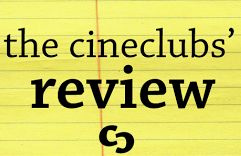info-FICC
Informative plattform of International Federation of Film Societies- Féderation Internationalle des Ciné-clubs- Federación Internacional de Cine Clubes
IFFS Jury Report. Carles Font. Cineclub Diòptria (Figueres – Catalonia)
39th HAVANA FILM FESTIVAL 12/17
 My experience for the Havana film festival started way before my arrival to Cuba. Since last year, when I knew that Quijote prize was back in Havana I wanted to run for jury member. When this year’s call was opened I sent my application right away. Consequently, when I got the news of my election I felt like a little child on Christmas day, I even read the e-mail twice to make sure I was in fact understanding the right thing.
My experience for the Havana film festival started way before my arrival to Cuba. Since last year, when I knew that Quijote prize was back in Havana I wanted to run for jury member. When this year’s call was opened I sent my application right away. Consequently, when I got the news of my election I felt like a little child on Christmas day, I even read the e-mail twice to make sure I was in fact understanding the right thing.
After my election I did quite some search about the festival to know its scope. I was invited to the 39th Edition, which showed me its historical scale. It covered all Latin America, what made think about excellent films watched from Mexican, Chilean, Argentinian or Brazilian cinemas in the past years and foresee the discovery of unknown filmographies like Caribbean one. When the program went public I became aware of the festival’s magnitude with more than 400 works on show.
To take advantage of such a long journey, I arrived four days before the beginning of the festival to have a little bit of time for tourism. I stayed on a “casa particular” (private house), a business that in the last years has flourished in all Cuba and specially in Havana. It was a way to get to know local people far from the cold relationship of hotels. After some adventure, I left my rucksack forgotten in a taxi and it was entirely returned, I started to try to understand a country so different from my origin. It must be said that it is a wonderful experience push our capacity of understanding when reality questions issues that we take for granted. This may be the feeling the traveller seeks and I must say that this feeling walked along with me during all my stay in Cuba. Things to highlight, a lot, as some examples the number of buildings being restored or renovated, people’s willingness to start a conversation, the weight of politics in every day’s life, the wonderful beaches just half an hour away from the city centre or austerity as a way of life.

After four days on holidays I attended the Hotel Nacional, festival headquarters. If the magnitude of the festival was already understood, getting into the historical hotel and attending afterwards an opening ceremony at the Karl Marx theatre with other 5000 people made my expectations grow even bigger. I met in quite a rush my two jury colleagues Lázaro Alderete from Cuba and John Crawford from New Zealand at the huge ceremony and we decided to meet the following day to start working. From the opening gala I would like to highlight the festival’s director speech. I am so used to the European cautiousness at the formal speeches I was happily surprised by the commitment assumed by the art of cinema in this festival. If you feel like reading, do not miss it. http://habanafilmfestival.com/cine-rompe-las-barreras/

As I said before, the festival’s programme had around 400 works that were divided in four sections: En concurso, that in its sub-sections of feature films where the ones judged by the FICC jury, Latinoamérica en perspectiva, divided in thematic sub-sections: society, environment, film library, among others; Otras latitudes, where films from other continents were shown and Entornos, place for the retrospectives. As a festival goer I wanted to have a taste at least of every section without skipping our duty to watch the nineteen films of our jury. The responsible for Fipresci and Signis juries was very kind to offer us transportation to attend the jury screenings. They scheduled a movie in the morning and two after lunch. I knew that I should miss some meal if I wanted to watch a small part of what I was interested in. Moreover, Havana in general and Vedado, district where the festival takes place, take up vast areas. From the seven cinemas where most of the films where screened, three where far away from the hotel, near the ICAIC (Cuban Cinema Institute). As a matter of fact, two of those three, Chaplin and Acapulco, held the juries’ screenings. Just a little word about the cinema venues. We have lost the habit to attend big cinema theatres and in Havana all except one, Infanta that has multiplex structure, seated between 800 and 1500 people. A nostalgia trip to the 20th century when every town had a venue like that.
As in any big event, there were some mishaps. One of the theatres intended to screen the juries’ sessions had its projector broken and everything had to be rescheduled. Personally, I changed the problem to opportunity and popped in a neighbouring cinema to watch two movies from Latinoamérica en perspectiva section: “La vida animada” (Ross Williams. Usa) telling the story of an autistic person who uses Disney cartoons to face the world and adulthood. The following debate answered lots of queries and show what was a debate like in Cuba, an unending series of comments and questions that the moderator had to stop as we were running out of time for the following session. After that, I watched “Los lobos del este” (Machado Quintela. Cuba/ Japan), a film produced by Naomi Kawase that show us the adventure of a Cuban director filming in Japan about Japanese issues, quite an experience.
 Other gems I found the rest of the days were: “La novia del desierto” (Pivato. Argentina), in the Opera Prima section, got the Coral Prize at the end thanks mainly to the performance of the renowned actress Paulina Garcia in a story about loneliness. The medium-length film “El cine de la Utopía” (Ancira, Astudillo. Mexico) from the sections Film Library, a vindication of cinema as a tool in revolution, a heritage that can be resumed with digital cinema. Also in the same section I watched “Las cinéphilas” (Alvarez. Argentina) where through a group of adorable ladies in love with cinema from Argentina, Spain and Uruguay depicts many issues linked to cinephiles, as entertainment in cinema, reality manipulation, mythomania, lasting through cinema or the big question of time and memory. In a special session I could watch “Cuba and the cameraman” (Alpert. Usa) a 40 years long task visiting and recording friends. The evolution of a series of Cuban characters seen by an “objective” American journalist. The attendance of the heroes of the film to the presentation turn the session in to an emotional friends’ gathering. From the German subsection I saw “Pienso en Alemania en la noche” (Karmakar. Germany) where you can feel the philosophy, spirituality and lifestyles behind electro music. And to finish with this personal selection I would like to mention “Residente” (Pérez. Puerto Rico) shown in the closing ceremony, a shocking documentary from the ex-leader of the group Calle 13 where he records a new album travelling around the world after his DNA test results.
Other gems I found the rest of the days were: “La novia del desierto” (Pivato. Argentina), in the Opera Prima section, got the Coral Prize at the end thanks mainly to the performance of the renowned actress Paulina Garcia in a story about loneliness. The medium-length film “El cine de la Utopía” (Ancira, Astudillo. Mexico) from the sections Film Library, a vindication of cinema as a tool in revolution, a heritage that can be resumed with digital cinema. Also in the same section I watched “Las cinéphilas” (Alvarez. Argentina) where through a group of adorable ladies in love with cinema from Argentina, Spain and Uruguay depicts many issues linked to cinephiles, as entertainment in cinema, reality manipulation, mythomania, lasting through cinema or the big question of time and memory. In a special session I could watch “Cuba and the cameraman” (Alpert. Usa) a 40 years long task visiting and recording friends. The evolution of a series of Cuban characters seen by an “objective” American journalist. The attendance of the heroes of the film to the presentation turn the session in to an emotional friends’ gathering. From the German subsection I saw “Pienso en Alemania en la noche” (Karmakar. Germany) where you can feel the philosophy, spirituality and lifestyles behind electro music. And to finish with this personal selection I would like to mention “Residente” (Pérez. Puerto Rico) shown in the closing ceremony, a shocking documentary from the ex-leader of the group Calle 13 where he records a new album travelling around the world after his DNA test results.
Besides pleasure there was also work, the official section. First, I would like to emphasize the good level of most of the selected works. Among those, there were some high-quality films which didn’t match our prize standards as they had been already commercially screened around the world or they had a fixed forthcoming date. In this category I would like to highlight: “Las hijas de Abril” (Franco. Mexico) a story about family issues where madness appears and shows us its unstoppable spin. “Zama” (Martel. Argentina) An allegory about false expectations with great formal beauty. “Una especie de familia” (Lerman. Argentina) an intense thriller about desire’s fulfilment with a great performance from Barbara Lennie. “Alanis” (Berneri. Argentina) a social and realistic portrait without any graciousness and trying not to offer cheap ways out. “Los perros” (Said. Chile) explores the journey into accusing loved ones with outstanding performances by Antonia Zegers and Alfredo Castro. And the widely acclaimed “Una mujer fantástica” (Lelio. Chile) where topics like transgender, social hypocrisy or feelings are dealt in a bolt way inside a round film with lots of qualities.
Another film to appreciate and that I do not know if it is going to be shown commercially is “Liquid truth” (Jabor. Brazil), based on a play tackles sensitive matters as child abuse in a modern environment where social networks are a burden.
 To conclude with the films seen in the festival I have left to comment on the two films prized by the FICC jury. First, we gave a mention to “Praça Paris” (Murat. Brazil) a work, crafted in a modern way and ideologically committed, that can be described as social cinema, deals with present matters with a growing tension that makes fear emerge showing the real topic of the film. It depicts the insecurity that the well-off part of our society is trying to stop without tackling the inequality that arises it. The two main actresses give realism to the action with their moving performances.
To conclude with the films seen in the festival I have left to comment on the two films prized by the FICC jury. First, we gave a mention to “Praça Paris” (Murat. Brazil) a work, crafted in a modern way and ideologically committed, that can be described as social cinema, deals with present matters with a growing tension that makes fear emerge showing the real topic of the film. It depicts the insecurity that the well-off part of our society is trying to stop without tackling the inequality that arises it. The two main actresses give realism to the action with their moving performances.
Quijote prize was given to “Restos de Viento” (Montemayor. Mexico), a little gem that follows the mourning rhythm with a sad and hazy light dampening the whole film. The children performances are strangely natural. Dolores Fonzi in the leading role reflects perfectly the evolution of her character. Indoors locations shot in close-ups and framed by evocative music transport us to a past to unravel. Child’s mythology is one of the method shown in the film to give way the pain of loss. After trying to look for answers the film states that there are no answers to pain and loss, but invites us to the search without the finding.
Just a final remark at the end of this article to sincerely thank all the organisation of the festival for the help to solve any inconvenience before and during the event, specially to Mario Naito López for his help with transportations and his infinite patience and to Lázaro Alderete, Cuban member of FICC jury, to care for us. These thanks can be extended to all Cuban people for their kindness and joy for life.










Recent Comments